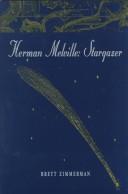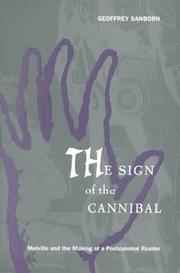| Listing 1 - 2 of 2 |
Sort by
|

ISBN: 1282855298 9786612855290 0773567445 9780773567443 0773517863 9780773517868 Year: 1998 Publisher: Montreal [Que.] McGill-Queen's University Press
Abstract | Keywords | Export | Availability | Bookmark
 Loading...
Loading...Choose an application
- Reference Manager
- EndNote
- RefWorks (Direct export to RefWorks)
Melville's passion for things astronomical is visible throughout his canon. Zimmerman places Melville's many astronomical citations within the thematic context of the works in which they appear and within the larger cultural and historical context of nineteenth-century studies. In addition he provides a comprehensive catalogue of every reference to astronomy, its practitioners, and related topics in Melville's works. Herman Melville: Stargazer will be of great interest to scholars and students of American literature as well as those interested in the relationship between science and literature.
Literature and science --- Astronomy in literature. --- Poetry and science --- Science and literature --- Science and poetry --- Science and the humanities --- History --- Melville, Herman, --- Melville, Herman --- Melvill, German --- Melville, Hermann --- Meville, Herman --- Melvil, Cherman --- Mai-erh-wei-erh, Ho-erh-man --- Melṿil, Herman --- Tarnmoor, Salvator R. --- מלוויל, הרמן, --- מלויל, הרמן, --- ميلڤيل، هرمن، --- 麥爾維爾, --- Virginian spending July in Vermont, --- Melvill, Herman, --- Knowledge --- Astronomy.

ISBN: 0822321181 0822321025 9780822321187 Year: 1998 Publisher: Durham, N.C. Duke University Press
Abstract | Keywords | Export | Availability | Bookmark
 Loading...
Loading...Choose an application
- Reference Manager
- EndNote
- RefWorks (Direct export to RefWorks)
"In The Sign of the Cannibal Geoffrey Sanborn offers a major reassessment of the work of Herman Melville, a definitive history of the post-Enlightenment discourse on cannibalism, and a provocative contribution to postcolonial theory. These investigations not only explore mid--nineteenth century resistance to the colonial enterprise but argue that Melville, using the discourse on cannibalism to critique colonialism, contributed to the production of resistance. Sanborn focuses on the representations of cannibalism in three of Melville's key texts--Typee, Moby-Dick, and "Benito Cereno." Drawing on accounts of Pacific voyages from two centuries and virtually the entire corpus of the post-Enlightenment discourse on cannibalism, he shows how Melville used his narratives to work through the ways in which cannibalism had been understood. In so doing, argues Sanborn, Melville sought to move his readers through stages of possible responses to the phenomenon in order to lead them to consider alternatives to established assumptions and conventions--to understand that in the savage they see primarily their own fear and fascination. Melville thus becomes a narrator of the postcolonial encounter as he uncovers the dynamic of dread and menace that marks the Western construction of the "non-savage" human. Extending the work of Slavoj Zizek and Homi Bhabha while providing significant new insights into the work of Melville, The Sign of the Cannibal represents a breakthrough for students and scholars of postcolonial theory, American literary history, critical anthropology, race, and masculinity."--Publisher's description.
Melville, Herman --- Authors and readers --- Books and reading --- Cannibalism in literature. --- Colonies in literature. --- Imperialism in literature. --- Literature and anthropology --- Postcolonialism in literature. --- Postcolonialism. --- Reader-response criticism. --- History --- Melville, Herman, --- Political and social views. --- Imperialism in literature --- Postcolonialism in literature --- Cannibalism in literature --- Reader-response criticism --- Colonies in literature --- Postcolonialism --- Post-colonialism --- Postcolonial theory --- Political science --- Decolonization --- Reader-oriented criticism --- Reception aesthetics --- Criticism --- Reading --- Anthropology and literature --- Anthropology --- Melvill, German --- Melville, Hermann --- Meville, Herman --- Melvil, Cherman --- Mai-erh-wei-erh, Ho-erh-man --- Melṿil, Herman --- Tarnmoor, Salvator R. --- מלוויל, הרמן, --- מלויל, הרמן, --- ميلڤيل، هرمن، --- 麥爾維爾, --- Virginian spending July in Vermont, --- Melvill, Herman,
| Listing 1 - 2 of 2 |
Sort by
|

 Search
Search Feedback
Feedback About UniCat
About UniCat  Help
Help News
News